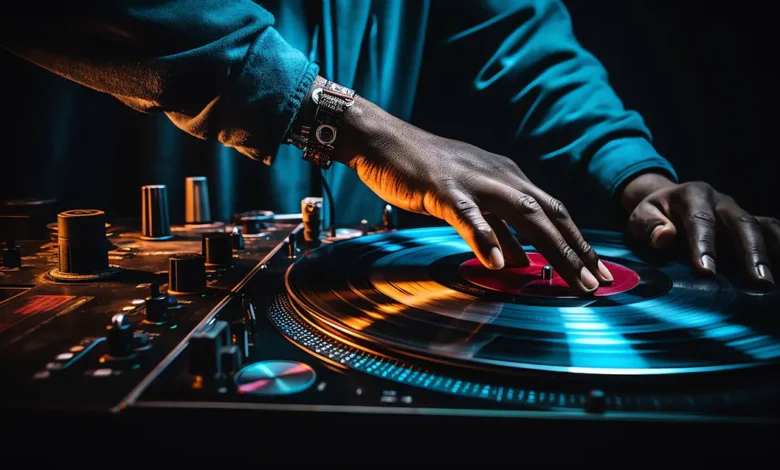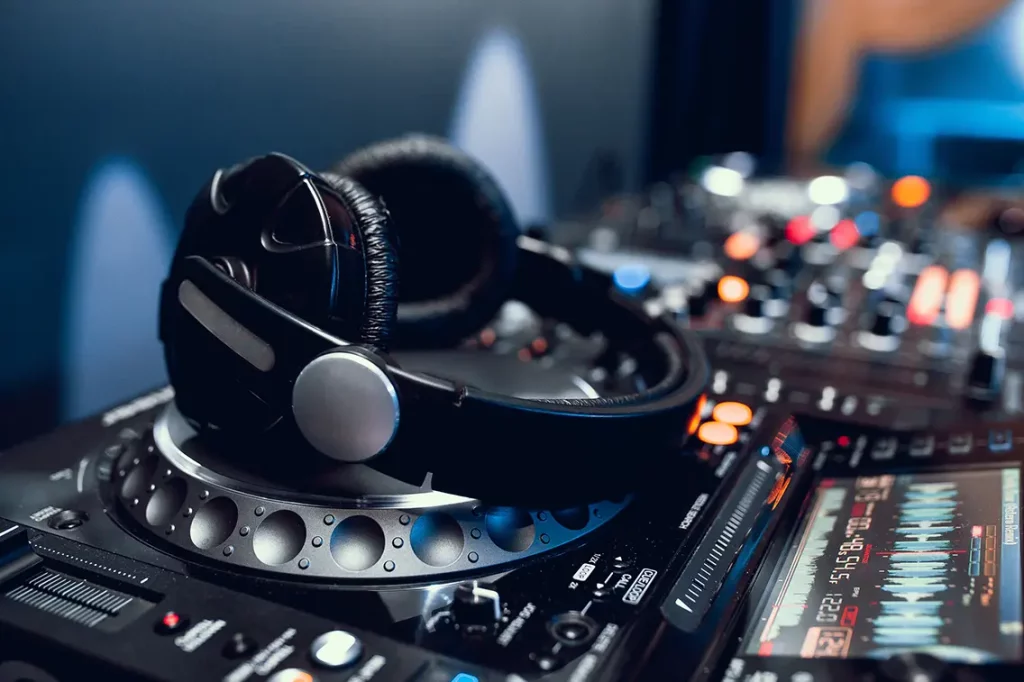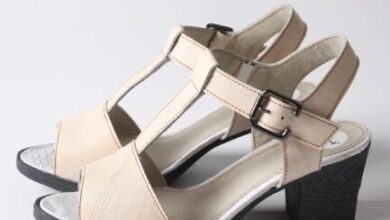The Ultimate Guide to DJ Equipment: Choosing the Best Gear for Your Setup

When it comes to DJ equipment, making the right choice can be overwhelming. The world of DJ gear includes a wide range of options, from controllers and mixers to speakers and headphones. Understanding the features and functions of each piece of DJ equipment is crucial for setting up your ideal DJ setup.
In this guide, we’ll break down everything you need to know about DJ equipment. Whether you’re just starting out or looking to upgrade, you’ll learn about the essential gear, the latest technology, and tips for making informed decisions. Get ready to dive into the world of DJ equipment and create your perfect setup!
Understanding DJ Equipment: A Beginner’s Overview
When starting with DJ equipment, it can be tricky to know where to begin. DJ gear comes in many forms, including controllers, mixers, and speakers. Each type of equipment has a specific job that helps create the perfect sound for your audience.
The most basic setup usually includes a controller, which combines various functions like mixing and playing music. You’ll also need speakers to project your sound and headphones to monitor your tracks. Each piece of DJ equipment plays a crucial role in your setup, so it’s important to understand their functions before making a purchase.
To make your choice easier, consider what kind of DJing you want to do. Are you playing in small venues or large clubs? This will influence the type of equipment you need. For instance, a powerful speaker system is essential for large venues, while smaller, more portable gear might be sufficient for smaller gigs.
Essential DJ Equipment for Your First Setup
For those new to DJing, it’s important to start with the right equipment. Essential DJ equipment includes a DJ controller, speakers, and headphones. These items form the backbone of your setup and help you get started with mixing and playing music.
- DJ Controller: This is the central piece of your setup. It combines features of a mixer and player, allowing you to control your music software easily.
- Speakers: Good quality speakers are crucial for delivering clear and powerful sound. They help your audience enjoy your music to the fullest.
- Headphones: DJ headphones are designed to provide clear sound and noise isolation, so you can hear your tracks clearly without outside distractions.
These basics will give you a solid start. As you gain experience, you might want to expand your setup with additional equipment like a separate mixer or advanced DJ software.
Choosing the Right DJ Controller: What to Look For
A DJ controller is a key part of your DJ equipment. It allows you to manage and manipulate your music software with ease. When choosing a controller, there are several features to consider to ensure it fits your needs.
- Build Quality: Look for a controller that is sturdy and durable. If you’re a mobile DJ, you’ll want equipment that can handle the rigors of travel.
- Layout and Controls: The layout should be intuitive and easy to use. Make sure the knobs, faders, and buttons are arranged in a way that suits your style.
- Compatibility: Ensure that the controller is compatible with your preferred DJ software. Some controllers work better with specific programs, so check compatibility before buying.
A good DJ controller should feel comfortable and allow you to mix effortlessly. Spend some time trying out different options to find the one that feels right for you.
The Role of DJ Mixers in Your Equipment Setup
DJ mixers are another crucial part of DJ equipment. They are used to blend different audio sources and control the overall sound. A DJ mixer helps you manage audio levels and apply effects to create seamless transitions between tracks.
- Mixing Functions: Mixers allow you to adjust the volume and EQ settings of each track. This helps you balance the sound and create smooth transitions.
- Effects and Filters: Many mixers come with built-in effects and filters. These tools let you add creative touches to your music, such as echo or reverb.
- Connectivity: A good mixer should have multiple inputs and outputs. This allows you to connect various devices, like turntables or additional media players.
Using a DJ mixer effectively requires practice. Learning how to balance sound and apply effects will improve your mixing skills and enhance your performances.
How to Pick the Best DJ Speakers for Your Needs
Choosing the right DJ speakers is essential for delivering great sound at your events. The best DJ speakers will depend on factors like venue size and the type of music you play.
- Power and Volume: Speakers need to be powerful enough to fill the space where you’re performing. Consider the wattage and volume capabilities to ensure they meet your needs.
- Sound Quality: Look for speakers that offer clear and accurate sound. High-quality speakers will help your music sound its best and keep the audience engaged.
- Portability: If you travel frequently, choose speakers that are easy to transport. Some speakers are designed to be lightweight and come with handles or wheels.
Selecting the right DJ speakers will make a big difference in your performance. Make sure to test different models to find the ones that offer the best sound quality and meet your performance requirements.
DJ Headphones: Why They Matter and How to Choose
DJ headphones are a crucial piece of DJ equipment. They allow you to hear your tracks clearly while mixing and ensure that you can make precise adjustments. Here’s what to consider when choosing DJ headphones.
- Sound Isolation: Look for headphones that block out external noise. This helps you focus on your music and make accurate adjustments.
- Comfort and Fit: Choose headphones that are comfortable to wear for long periods. Adjustable headbands and cushioned ear pads will enhance comfort.
- Sound Quality: Good headphones should provide clear and detailed sound. This helps you hear every nuance of your tracks, making it easier to mix them smoothly.
Investing in high-quality DJ headphones is important for any DJ. They play a vital role in ensuring that your mixes are precise and professional.
The Difference Between Digital and Vinyl DJ Equipment
DJ equipment has evolved from traditional vinyl setups to digital systems. Understanding the differences between digital and vinyl DJ equipment can help you choose the right setup for your needs.
- Vinyl DJ Equipment: Traditional setups use turntables and vinyl records. Many DJs appreciate the tactile feel and classic sound of vinyl.
- Digital DJ Equipment: Digital setups use controllers and software to manage music. They offer more flexibility and a wider range of effects and features.
Both types of equipment have their advantages. Vinyl offers a nostalgic experience, while digital equipment provides more control and convenience. Decide based on your personal preference and performance needs.
How to Integrate DJ Software with Your Equipment
Integrating DJ software with your equipment can enhance your performance and make mixing easier. Here’s how to ensure smooth integration between your software and DJ equipment.
- Software Compatibility: Check that your DJ software works well with your hardware. Some controllers are designed to work specifically with certain software.
- Setup and Configuration: Follow the manufacturer’s instructions to set up and configure your equipment. This ensures that all components work together seamlessly.
- Updates and Upgrades: Keep your software and firmware updated. This helps prevent compatibility issues and ensures you have the latest features.
Proper integration of DJ software and equipment will improve your workflow and make your performances more professional.
The Benefits of Wireless DJ Equipment: Is It Worth It?
Wireless DJ equipment offers several advantages, but it’s important to weigh these against potential drawbacks. Here’s a look at the benefits and considerations of going wireless.
- Freedom of Movement: Wireless gear eliminates the need for cables, allowing you to move around more freely during your performance.
- Reduced Setup Time: Wireless equipment can simplify setup by reducing the number of cables you need to manage.
- Potential Connectivity Issues: Be aware that wireless equipment can sometimes face connectivity problems. Make sure to test your gear thoroughly before performing.
Wireless DJ equipment can be a great addition to your setup if you value mobility and a clean stage setup. However, ensure that it meets your performance needs and reliability requirements.
Budget-Friendly DJ Equipment: Finding Quality on a Dime
You don’t need to spend a fortune to get good DJ equipment. With careful shopping, you can find quality gear at affordable prices. Here’s how to get the most value for your money.
- Research and Compare: Look for reviews and compare prices to find the best deals. Many reputable brands offer budget-friendly options that don’t compromise on quality.
- Consider Used Gear: Buying used equipment can save money. Just make sure to check the condition and functionality before purchasing.
- Look for Deals and Discounts: Keep an eye out for sales and promotions. Sometimes you can find excellent gear at reduced prices during special offers.
Finding budget-friendly DJ equipment requires a bit of effort, but it’s possible to build a great setup without breaking the bank.
Upgrading Your DJ Gear: When and Why to Do It
Upgrading your DJ gear can enhance your performance and keep up with technological advancements. Here’s when and why you might consider upgrading your equipment.
- Improved Features: Newer models often come with advanced features that can improve your mixing capabilities and performance.
- Increased Reliability: Upgrading to newer equipment can provide better reliability and reduce the risk of malfunctions during performances.
- Adapting to Changes: As technology evolves, upgrading your gear can help you stay current with industry trends and maintain a competitive edge.
Deciding to upgrade your DJ equipment should be based on your performance needs and the benefits that newer models offer. Regular updates can help you stay at the top of your game.
Setting Up Your DJ Equipment: Tips for Optimal Performance

Proper setup of your DJ equipment is crucial for achieving the best performance. Here are some tips to ensure everything is set up correctly and functioning smoothly.
- Positioning: Place your equipment in a comfortable and accessible position. Ensure that your controller, speakers, and other gear are within easy reach.
- Cable Management: Organize your cables to prevent tangling and damage. Use cable ties or clips to keep everything neat and secure.
- Testing and Calibration: Before your performance, test all your equipment to make sure it’s working correctly. Calibrate settings as needed for optimal sound quality.
A well-organized and properly set up DJ rig will help you perform confidently and deliver the best experience for your audience.
Conclusion
Choosing the right DJ equipment can make a big difference in your performances. Whether you’re just starting or looking to upgrade, understanding the basics will help you pick the best gear for your needs. Remember to think about what you need for your setup, like controllers, speakers, and headphones. Each piece of equipment plays a special role in making your music sound great.
With the right DJ equipment, you’ll be ready to impress your audience and enjoy mixing music. Don’t forget to research and try out different options to find what works best for you. Happy DJing!
FAQs
Q: What is the most important piece of DJ equipment for beginners?
A: The DJ controller is usually the most important piece for beginners. It combines functions of a mixer and player, making it easier to start mixing and playing music.
Q: How do DJ speakers differ from regular speakers?
A: DJ speakers are designed to handle high power and provide clear sound at loud volumes, making them suitable for performances and parties, unlike regular speakers that may not be as powerful.
Q: Can I use my laptop with DJ equipment?
A: Yes, many DJ setups include software that works with a laptop. The laptop helps manage your music and control the DJ equipment.
Q: What should I look for in DJ headphones?
A: Good DJ headphones should have clear sound, noise isolation, and comfort. They need to help you hear your tracks clearly while blocking out outside noise.
Q: How often should I upgrade my DJ equipment?
A: You should consider upgrading your DJ equipment when you need better features, improved reliability, or if your gear becomes outdated compared to new technology.



